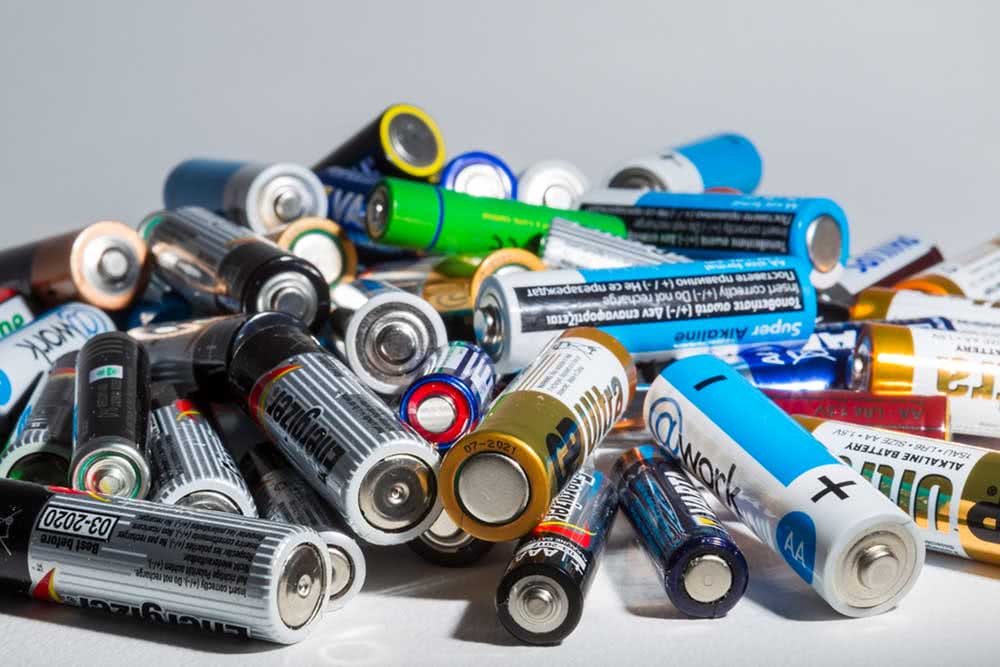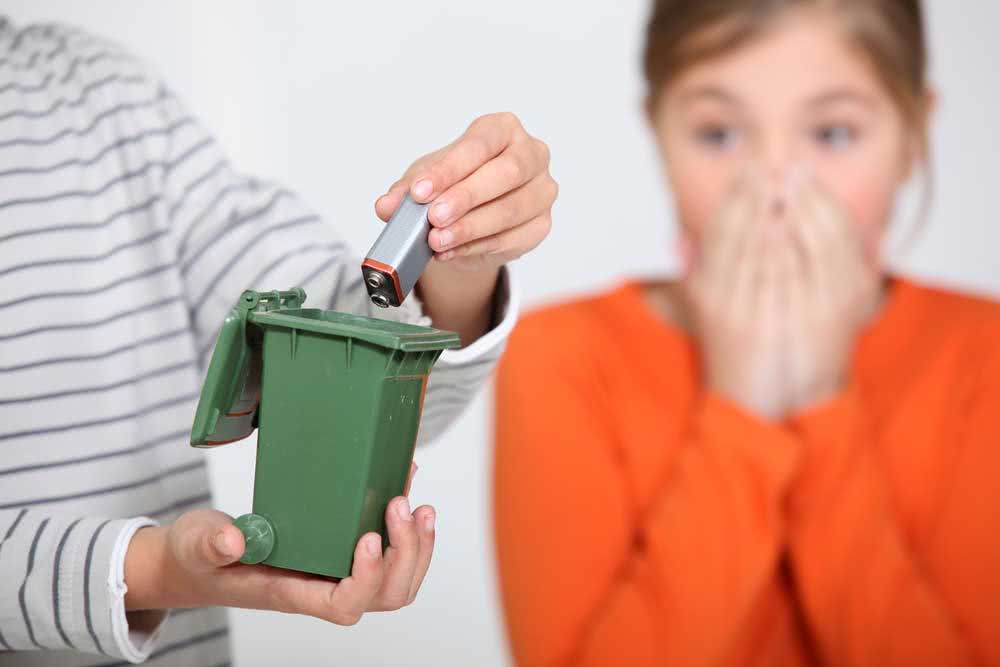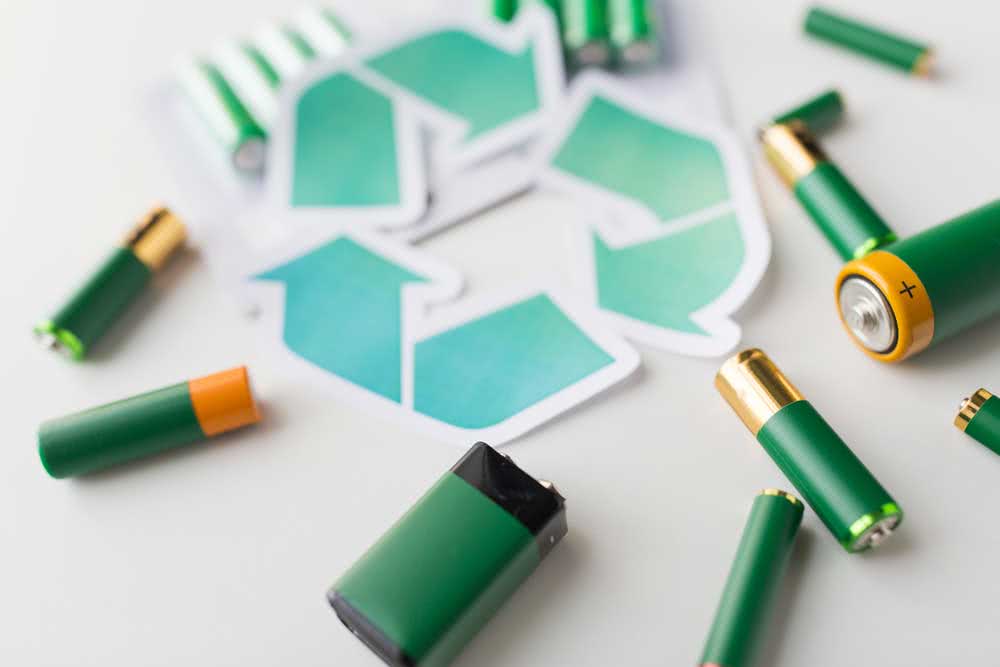Batteries are part of the modern world, but that does not mean that they must also be part of the environment.
On the contrary! If there is one thing that does not match at all it is pile and nature. That is why it is extremely important that these components are disposed of correctly.
To help, we have important tips and information to guide you on disposing of batteries. Come and see!
Importance of correct disposal of batteries

The first thing you need to know is that any and all batteries on the face of the Earth are manufactured with highly toxic materials, both for the environment and for human health.
Among the main chemical compounds present in these components are mercury, lead and cadmium.
The problem with that? When batteries are disposed of inappropriately, there is a serious risk that they will dent or even burst, causing the liquid inside to leak and cause contamination.
Environmental contamination
Incorrect disposal of batteries and batteries is very harmful to the environment. The substances contained within these components can have serious consequences for animal and plant life, in addition to contributing to pollution and contamination of soil and waterways.
Human health risks
Once disposed of inappropriately, batteries also pose a risk to human health, especially if there is contamination in water and soil.
The ingestion of water contaminated with the substances present in the batteries can cause a series of damages to the organism, such as problems in the nervous system, increase in blood pressure and alteration in the cell nucleus, which directly interferes in a series of important biochemical processes. for the human body.
How and where to dispose of batteries

Batteries and batteries must be disposed of in accordance with what is called “reverse logistics”.
Reverse logistics is nothing more than returning the product purchased at the end of its useful life to the manufacturer.
This is a very common practice and adopted in several sectors of the industry, such as fashion, for example.
The practice of reverse logistics is the most correct and sustainable way to dispose of waste, especially in the case of those that offer risks, such as batteries.
For this reason, by law, every commercial establishment that sells batteries and batteries is also obliged to collect them back and forward them to the manufacturer for proper disposal.
This resolution was published on November 5, 2008 by Conama (National Council for the Environment).
According to article 15 of the resolution “Establishments selling batteries and batteries referred to in art. 1st must contain adequate collection points ”.
That is, batteries should not be disposed of with normal waste. The correct way to dispose is to take these components to collection points or to the place where you made the purchase.
How to dispose of batteries correctly
The correct disposal of batteries and batteries should start inside your home. First, separate the batteries and batteries that you no longer use and store them in a dry, ventilated place that is isolated from other materials.
Place them in a plastic bag and also avoid exposing these components in hot places or in direct sunlight.
Once this is done, you must seek the nearest collection center to perform the disposal.
What the law says about the disposal of batteries
Resolution 401 of Conama, mentioned above, also says that the manufacturers of batteries must inform the consumer in a clear and objective way how to perform the disposal correctly.
Article 14 quotes, for example, that “Advertising materials and battery packs, manufactured in the country or imported, must show clearly, visibly and in Portuguese, the symbolism indicating the proper destination, the warnings about the risks to human health and the environment, as well as as the need to, after its use, be forwarded to resellers or to the authorized technical assistance network, according to Annex I ”.
Conama also provides guidance to consumers, warning about the correct destination of this waste, under penalty of inspection by IBAMA.
The resolution reports that “Inappropriate ways of disposing or disposing of used batteries and batteries, of any type or characteristics, such as:
I – Open cast, both in urban and rural areas, or in an unlicensed landfill;
II – Open burning or incineration in unlicensed facilities and equipment;
III – Release into bodies of water, beaches, mangroves, swamps, vacant lots, wells or canyons, underground cavities, rainwater drainage networks, sewers, or electricity or telephone networks, even if abandoned, or in areas subject to inundation ».
This means that both manufacturers, businesses and consumers have obligations and duties regarding the disposal of batteries and, in the case of non-compliance with the aforementioned standards, they can be legally assessed for environmental crime.
In addition to the Conama resolution, several Brazilian states and municipalities also have their own specific laws on the disposal of batteries, such as São Paulo, Santa Catarina, Paraíba, Bahia and Rio Grande do Sul.
Precautions when using batteries

There are some precautions regarding the use of batteries that help to improve the performance, durability and useful life of the product. Here’s what to do to make your battery last longer and take longer to discard:
- Do not use “pirated” batteries. The lack of origin of the materials can put your health and that of your family at risk, not to mention that they have a much lower durability when compared to the original batteries.
- The batteries must always be the correct size and type for the device.
- The contact point of the batteries must always be kept clean. You can do this using the tip of a clean pencil eraser or a slightly rough cloth.
- When you are no longer using a device, remove the batteries. The same goes for appliances that also work on electricity, remove the batteries when plugging in.
- The batteries must always be placed on the correct side, that is, positive side with positive and negative side with negative. Some devices with more than two batteries may work even if one of them is placed incorrectly, this makes the batteries last less.
- The heat and exposure to the sun makes the batteries lose their durability. That is why it is important to keep the appliances away from heat sources and protected from the sun. In extreme cases of exposure to high temperatures, batteries may leak, so be careful.
Ready now to do your part?



